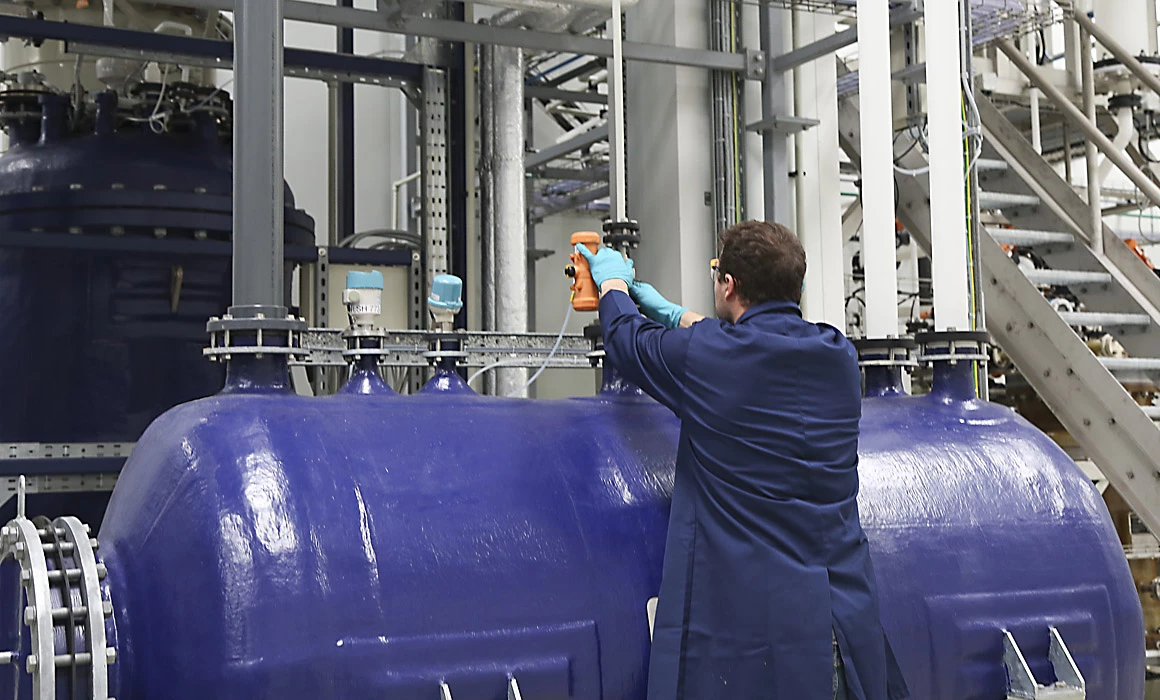
Partner Article
Nexeon and Partners Funded for New Battery Materials Initiative
SPICE Project Aims to Accelerate Use of Silicon Anode Materials
Nexeon - the company developing and supplying battery materials for rechargeable Li-ion batteries – is leading a new project to optimise coating technology for its silicon material. This approach will result in improved cell performance, and also extend the system compatibility of silicon anode materials, allowing use of lower cost electrolyte formulations and lower overall battery cell costs.
The project, named SPICE for Silicon Product Improvement through Coating Enhancement, is already underway, and is expected to take eighteen months to complete. The focus of the work will be the use of an optimised coating for improved surface morphology, leading to improved conductivity of the underlying anode material for faster charge rates, and sustained capacity of the battery during charge / discharge cycles.
Nexeon is working with partners Phoenix Scientific Industries (PSI), AGM Batteries and Oxford University’s Department of Materials, and the team has been awarded £2 million in funding through the Government’s ISCF Faraday Battery Challenge by Innovate UK, part of UK Research and Innovation.
Nexeon will lead the project, and apply its expertise in the design and performance of materials for lithium ion batteries. It has already established a laboratory scale coating process for its silicon anode material, and its scale up team has expertise in scaling up high value materials to mass production.
A chemical vapour deposition coating process is being designed by PSI, whose experience in producing a similar system for coating powders for a major aerospace company make it an ideal partner in this project.
AGM Batteries Ltd is the UK’s only cell manufacturer, with significant experience in developing new battery technology and chemistry. Its skills enable the transfer of new products to manufacture. AGM’s role in the SPICE work is to validate the performance of prototype cells incorporating Nexeon’s coated silicon anode powder, and to open its subsequent routes to market.
The project draws on Oxford University Department of Materials expertise to understand what is happening at the molecular level – assessing the uniformity, quality and performance of the special coating, using the UK’s most advanced equipment of its type for the purpose.
“This is an important step in the development of silicon battery materials”, said Dr Scott Brown, CEO of Nexeon. “Using an optimised coating has several important performance advantages, and will further strengthen the case for adoption of silicon anode technology by OEMs and battery makers globally.”
“We are excited to put our advanced coating technology to work in this important application”, said Bill Hopkins, Managing Director of PSI. “Silicon anodes are key to the development of next generation batteries, and we believe that coating the silicon material can enhance its potential even further, and speed market adoption.”
“The SPICE project creates the potential for higher performing cells with reduced overall battery costs”, said Ian Whiting, Business Development Director at AGM. “We plan to build on the planned success of the SPICE project through scale-up of cell production and supply into the market.”
This was posted in Bdaily's Members' News section by Terry Nicklin .








 Raising the bar to boost North East growth
Raising the bar to boost North East growth
 Navigating the messy middle of business growth
Navigating the messy middle of business growth
 We must make it easier to hire young people
We must make it easier to hire young people
 Why community-based care is key to NHS' future
Why community-based care is key to NHS' future
 Culture, confidence and creativity in the North East
Culture, confidence and creativity in the North East
 Putting in the groundwork to boost skills
Putting in the groundwork to boost skills
 £100,000 milestone drives forward STEM work
£100,000 milestone drives forward STEM work
 Restoring confidence for the economic road ahead
Restoring confidence for the economic road ahead
 Ready to scale? Buy-and-build offers opportunity
Ready to scale? Buy-and-build offers opportunity
 When will our regional economy grow?
When will our regional economy grow?
 Creating a thriving North East construction sector
Creating a thriving North East construction sector
 Why investors are still backing the North East
Why investors are still backing the North East